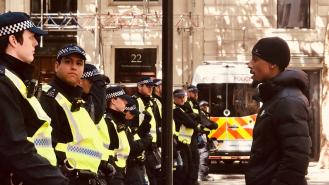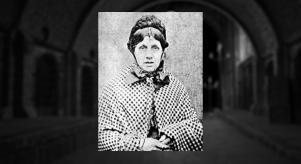
Why has there been a rise in hate crimes in the past two years?
At least some of this increase is down to better reporting
March 2021 saw an estimated 9% year-on-year increase in hate crimes across the UK. As concerning as this is, there has, in fact, been an increase in recorded hate crimes since 2014, when police recording methods were radically overhauled. Only 1% of recorded crimes were identified as hate crimes in March 2013. In the year ending March 2021, this has gone up to 3%.
Research also suggests far more hate crimes are being reported in the first place. So, could this apparent surge in hate crimes, simply reflect better reporting and the fact victims feel more empowered to come forward?
On the other hand….
Trigger events like COVID-19, Brexit, Black Lives Matter protests and far-right counter-protests have been mirrored by clear spikes in official hate crime. There is also the growing, insidious effect of online disinformation, the global rise of political extremism, and increasing social unrest caused by factors like climate change and refugee crises.
People are getting more violent – and more disorderly
Public figures show a clear correlation between the rise in violent and public order offenses and the rise in hate crime. Over half of all recorded hate crimes were public disorder offences, while 40% were violent and 5% related to arson and criminal damage. As criminal behaviour of this kind increases, it stands to reason that hate crimes are increasing too.
Hate crimes against women are not recognised or included in these statistics
To be classed as a hate crime in the UK, offences must be motivated by a victim’s race or ethnicity; religion or beliefs; sexual orientation; disability, or transgender identity. Meanwhile, women are experiencing, what has been called “an epidemic of violence”, with high-profile cases including the murders of Sarah Everard and Sabine Nessa. There are also growing concerns over the extremist incel movement, which Plymouth killer Jake Davison identified with. With misogyny currently excluded, is the problem of hate crimes actually more serious than official figures suggest?
Racist hate crimes increased more than any other kind of hate crime
Like previous years, the vast majority of recorded hate crimes were racially motivated – making up around three-quarters of the total. Racist hate crimes increased by 12%, compared to the overall figure of 9%. Carried within it, is an onslaught of anti-Asian hate crime that has surfaced during the pandemic. These incidents have often included verbal abuse which directly references the virus and China’s perceived blame.
Police estimated hate crimes against east and south-east Asians in the UK in 2020 increased by nearly 50% since 2018. Previous spikes in racial hate crime were seen in July 2016 following the EU Referendum, July 2017 following a spate of ISIS terror attacks, and in July 2020, following Black Lives Matter protests.
Homophobic and transphobic hate crimes are gathering momentum
Data obtained by Vice shows reported homophobic hate crime has tripled, while transphobic hate crime reports have quadrupled over the last six years. Certain areas, like Cambridgeshire, have reported sharp increases in LGBTQ+ hate crime following lockdowns. Lockdowns themselves create a pressure cooker effect, leading to spikes in antisocial behaviour immediately afterwards.
The insidious growth of online conspiracy theories has also reportedly played a role – with some apparently viewing the pandemic as a kind of plague upon the LGBTQ+ community. A recent report also highlights the damaging effect of anti-trans sentiment from certain celebrities and UK newspapers.
Religious hate crimes decreased
Bucking the overall trend, religious hate crime actually fell by nearly 20% – the second successive year it decreased, following a peak of 7,202 in March 2019. Almost half of all hate crimes were directed by Muslims, compared to the next most targeted group, Jews, comprising one-fifth of all incidents. Religious hatred – particularly in the case of Islam – often goes hand in hand with racism. The 2019 spike followed a protracted period of anti-Islam rhetoric in the UK and elsewhere. There have also been several high-profile incidents of anti-Semitism in recent years, in the UK.
Social media may be causing more hate crimes
Recent studies by the BBC, Media Matters and others have suggested algorithms on social media platforms like Facebook and TikTok could be radicalising its users. Setting up dummy accounts, these studies found users were bombarded with content that was racist, homophobic, transphobic, misogynistic, and sometimes violent. It has consistently been shown that this radicalisation does not stay online. As online hate crimes increase, so does real-life in-person harassment and violence.
Hate crimes are not just rising in the UK
A recent report found Europe has seen a surge of Islamophobic hate crimes since the beginning of 2020. In Austria, for example, anti-Muslim hate crimes reported in 2020, was more than double the rate the year before. The US has seen its own rise in hate crimes – particularly racially aggravated attacks. Like the UK, COVID-19 has seen an escalation in anti-Asian abuse.
Mass shootings driven by racial and religious hatred have also surged in recent years, alongside the rise of far-right groups, like The Proud Boys. In 2019, the FBI reported US hate crimes had risen to the highest level in more than a decade. Australia has also seen a swell of anti-Asian hate crimes in the past couple of years.
Most hate crimes are never reported
The figures vary on this point, and any estimation of unreported crime is, itself, an underestimate, as many victims will never talk to anyone about their experiences. A 2017 report suggested as many as four out of five hate crimes against Britain’s LGBT community were not reported.
A 2020 study found 9 in 10 hate crimes go unreported in the EU. The FBI launched a year-long campaign in 2021 to encourage victims to report hate crimes, in the belief they are currently significantly under-reported. As alarming as current hate crime figures might be, they could be the tip of a Titanic-sized iceberg.








